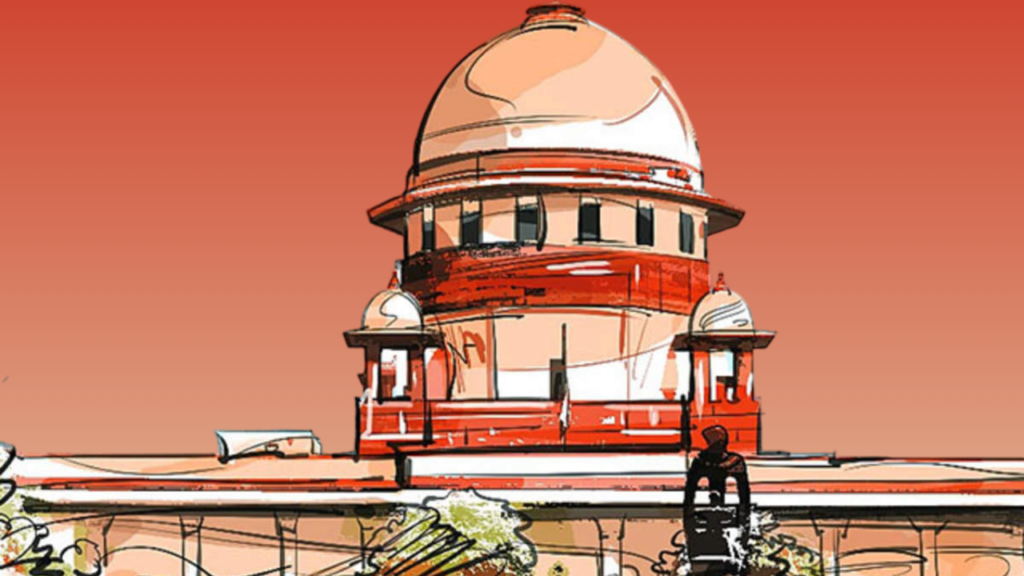Rehan Khan
On 5th November, the Supreme Court upheld the constitutionality of the Uttar Pradesh Board of Madarsa Education Act, 2004, confirming the state’s legislative authority to establish and administer educational standards in madrasas. The Act which introduced the Madarsa Board and delegated its oversight to the Minority Welfare Department, had been previously struck down by the Allahabad High Court for allegedly violating the constitutional principle of secularism.
The Supreme Court bench, comprising Chief Justice of India (CJI) DY Chandrachud, along with Justices JB Pardiwala and Manoj Misra, reversed the High Court’s judgment, emphasizing that statutes can only be invalidated if they infringe upon fundamental rights under Part III of the Constitution or exceed legislative jurisdiction. The Court underscored, “A statute cannot be struck down solely for alleged violation of the basic structure of the Constitution. Fundamental rights or legislative competence must be compromised for such an action.”
The ruling aligns with the State’s responsibility to protect minority rights and support educational standards. In defense of the Madarsa Act, the Court acknowledged its purpose: to standardize education in madrasas and ensure that students are adequately prepared to integrate into society and attain gainful employment. “The Act’s objective is not to interfere in daily madrasa operations but to secure educational quality and safeguard the rights of minorities in Uttar Pradesh,” the Court stated.
However, the Court struck down certain provisions that allowed the Madarsa Board to prescribe coursework and textbooks for advanced religious degrees like fazil (junior research) and kamil (postgraduate studies), finding them incompatible with the University Grants Commission (UGC) Act. The UGC Act grants the central government exclusive legislative authority over higher education, and any state regulation in this domain infringes on that prerogative.
Key Takeaways from the Supreme Court’s Ruling:
- Validation of the Madarsa Act: The Court upheld that the Madarsa Act is within the legislative competence of the State of Uttar Pradesh. Its primary aim is to regulate the quality of education imparted in madrasas, ensuring students attain educational credentials that are universally recognized.
- Preservation of Minority Rights: By standardizing madrasa education, the Act fulfills a “positive obligation of the State”, in line with Article 30, which protects the rights of religious and linguistic minorities to establish and manage their own educational institutions. The Act, therefore, safeguards minority rights without compromising educational quality.
- Conflict with UGC Act: The Supreme Court ruled that the Act’s provisions regarding higher education degrees, such as fazil and kamil, were unconstitutional due to their conflict with the UGC Act, which falls under central jurisdiction.
- Scope of Secularism in Educational Statutes: The Supreme Court dismissed the Allahabad High Court’s assertion that the Act infringed upon secular principles, stating that secularism does not preclude the establishment of educational boards that cater to religious minorities, provided they also adhere to state educational standards.
The Allahabad High Court had initially invalidated the Act, arguing that it contravened secularism by promoting religious education through a state board. The High Court emphasized that creating a separate board for a particular religion’s educational institutions, particularly in a secular state, violated both secular principles and Article 14, which mandates equality before the law.
According to the High Court, the education provided under the Act failed to meet the quality and universality requirements outlined in Article 21A, which guarantees free and compulsory education. The Court highlighted that the education system under the Madarsa Act was neither equivalent to the secular curriculum followed by other recognized educational boards nor sufficient to fulfill modern educational standards.
The Supreme Court, however, found the High Court’s interpretation flawed. The bench pointed out that “the right to free and compulsory education under the Right to Education Act does not extend to minority educational institutions,” which are constitutionally protected under Article 30. Thus, while madrasas include religious content, the primary purpose of the Act is to ensure that their academic offerings align with essential educational standards.

